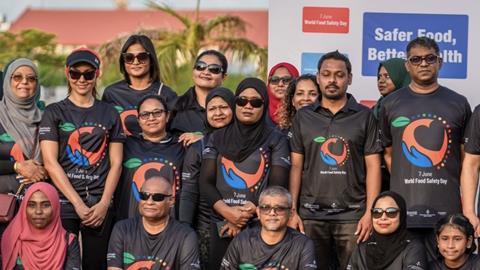‘Food standards save lives’, according to this year’s World Food Safety Day, which focuses on food safety areas including food security, health and agriculture
GlobalGAP is celebrating the fifth World Food Safety Day, a call to action by the WHO and UN FAO focused on food safety, covering issues including foodborne risks, food security, health, economic prosperity, sustainable development and agriculture.
This year’s campaign, dubbed ‘Food standards save lives’, draws attention to the significance of food standards in ensuring food safety and quality.
“The WHO and FAO have underscored the fact that food safety benefits not only consumers but also producers and global economies by boosting consumer confidence in products on the market,” GlobalGAP said.
“Playing a key role in the food safety sector, GlobalGAP offers industry-leading, cost-effective and value-adding assurance and benchmarking solutions, which have been continuously developed through extensive collaboration with stakeholders across the value chain over the last 25 years,” it stated.
The flagship Integrated Farm Assurance (IFA) standard has food safety at its heart, with 22 per cent of the requirements in the latest version of IFA for fruit and vegetables dedicated solely to food safety.
The FAO reported that rising temperatures could increase food and waterborne diseases, spread fungal infections in plants, drive plant pests into new areas (potentially leading to pesticide overuse) and increase the spread of harmful algae, thereby affecting seafood safety.
“IFA helps fight these effects by promoting the protection of food and water sources and the monitoring of products to prevent pests and diseases,” GlobalGAP explained. “The new requirement for continuous improvement plan under IFA v6 also encourages measurable target setting to strengthen environmental sustainability on farms.”
GlobalGAP’s Chain of Custody standard also contributes to food safety by mitigating the risk of food fraud and providing supply chain transparency through strict requirements for the proper segregation, handling and tracing of food products, from farms to retailers, it said.
“The GlobalGAP Secretariat recognises that threats to food safety and security are experienced unequally across the globe. Women and children, marginalised communities, and those in war-torn areas are exposed to higher risks of falling ill to foodborne diseases, for example.”




